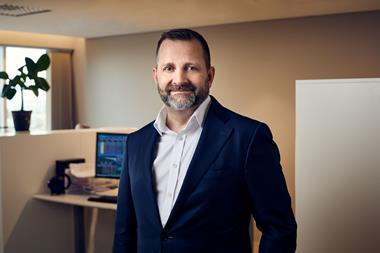What was your first full-time job - and do you remember what you were paid at the time?
It was 1964, the job was in the rates [local government tax] office and I was paid around £450 (€658) a year. I remember that at 18 people got a pay rise to the minimum wage but at the same time joined the pension fund, or what we then called the superannuation scheme, so I was no better off. I joined the pension fund by default; it's probably the best move I ever made.
What was the best piece of advice that anyone gave you career-wise and did you take it?
I've got a couple of those. The first was even before I started work I went to the local careers office and the adviser said "Remember that they are looking for people like you and have confidence in your own ability". I have always found that useful. The other was related to the pensions industry. A favourite phrase of my old boss was: "Sometimes you have to pay a bit more to know a bit more", which has stuck in my mind and has underlined my conservative, with a small ‘c', approach to investment.
How did a nice person like you become involved in a pensions career?
That was about 20 years ago. I had gone off to become a qualified accountant and had some treasury management experience. My previous boss had become the pension fund manager at Lincolnshire and had advertised a vacancy in his department. Although I had no direct experience in pension fund management I was able to convince the then county treasurer that I was reasonably quick up the learning curve and was appointed. The fact that I had worked for the pension fund manager before and he knew my abilities helped me, as did the fact that although treasury management was not necessarily the same as pension fund management it gets you used to dealing with large amounts of money.
What was the most satisfying achievement during your career - and why?
I think I have a couple of these. When I started we were running funds in-house and there was a huge satisfaction in getting your performance measured, which in the public service was quite unique. And the other was about two years ago when we brought our pensions administration and payroll service back in-house. It's not the fact that it was coming back in-house, because there are pros and cons on both sides, and it's not because I did most of the hard work, because my pensions manager did that and did a very good job. It was the overall satisfaction that we had to do it within a very short timescale of seven months during which we had to find new offices, relocate people, change payroll systems and we even managed to electronically record all of our 38,000 files, which saved us quite a bit on accommodation.
We were able to get everybody pulling in the same direction, including the outgoing contractor who was quite helpful. And not only did we do that but at same time we got on with the other work we needed to do to ensure that the scheme members did not notice the change. Obviously we informed everybody of the changes but hopefully in terms of their service the change was seamless.
And what was the worst moment in your career - and why?
The pension fund had cash on deposit with Barings Bank and when the bank crashed, the headlines in the local press and local TV said that the county council had lost £2m. It was nobody's fault because Barings was on our lending list but it wasn't certain we would get any of the money back. In fact it did work out all right because ING, which bought Barings for £1, acknowledged all of its liabilities and we were even paid interest on the default period. Nevertheless, it was not a nice experience and the local media exposure was one the most distressing elements. And when we recovered the money the news only made two lines in the centre of the newspaper, not on the front page.
How would you sell a career in pensions to a prospective newcomer to the industry?
It is a dynamic industry and whatever the popular perception I have never found it boring. There are always new challenges and the chance to use your own initiative. Increasingly people will realise that we are an ageing population and we have to service those people so it might be regarded as a growth area. We are all striving for an answer and although probably there is no right answer we are still all striving for it along the way.
What would you do differently?
Hindsight is a wonderful thing. It would have been nice to be better funded going into 2000. By the same token as a scheme we were in surplus prior to that thus the employers' were able to benefit via their ccontributions to the fund. This eased the pressure on their revenue budgets and they were better able to meet their service demands. So every action has an appropriate counter action and if one changed one thing it would put pressure elsewhere. The truth is that we cannot change anything, so probably the answer to the question of what would I do differently is nothing. Instead we have to learn from what has happened and use the experience in the future.
Do you have any unfulfilled ambitions?
I don't think I am ever going to play cricket for England, although the way they played in the World Cup I might get a trial. I did play
for Lincolnshire at the under-23 level so I was of a reasonable standard but never quite good enough. It's nice to look at things you might have done but when you have to
earn a living from it, it can look quite different. I like new challenges but I've never been what I'd call ambitious.
Are you retiring or are you recycling yourself into some new role?
I am retiring from Berkshire and I see that as a new phase in my life. The fact is we have been quite busy, we will remain busy and there will be quite a lot that I will have to hand on. So I have not really had time to consider what I will look at in the future. I'd like to think that I could stay in the business in some form and use my experience. I'll continue to look for new challenges. I don't want to vegetate.
Your words of wisdom for those in the pensions industry?
We have already touched on it: don't dwell on the past, learn from it, it's right to consider new developments but do so carefully, you may not dismiss them totally, they may come back at the end of the day. And I suppose as far as pensions are concerned, there's a long-term liability so try to look at those long-term time horizons.












